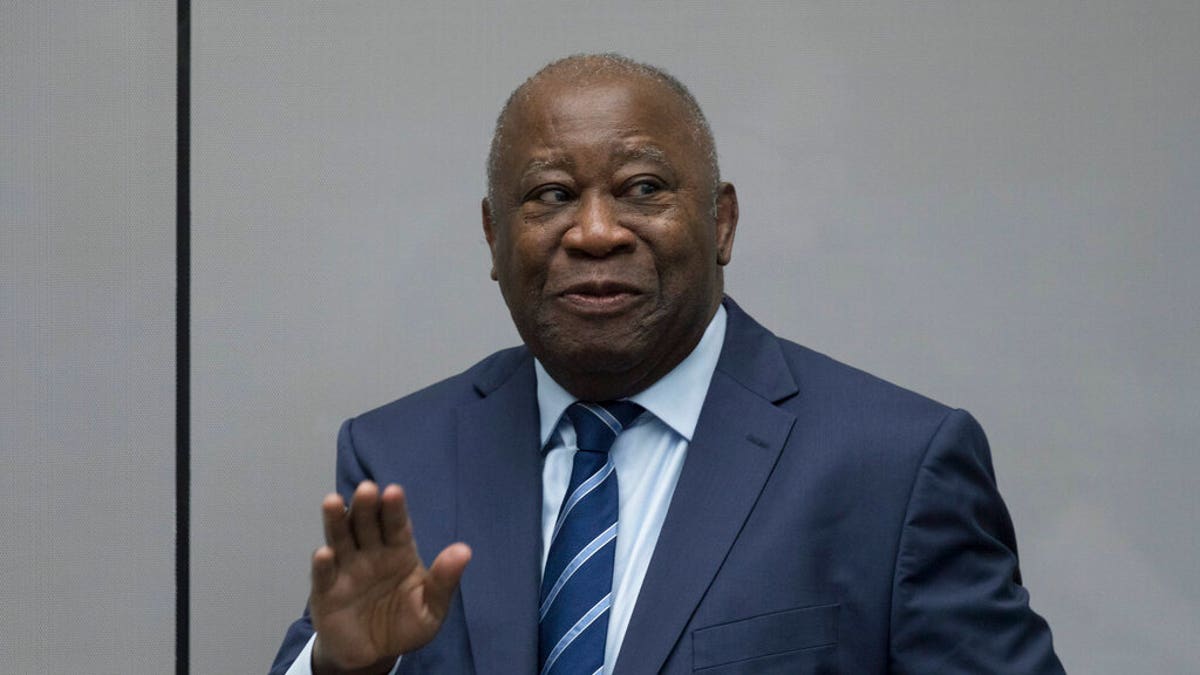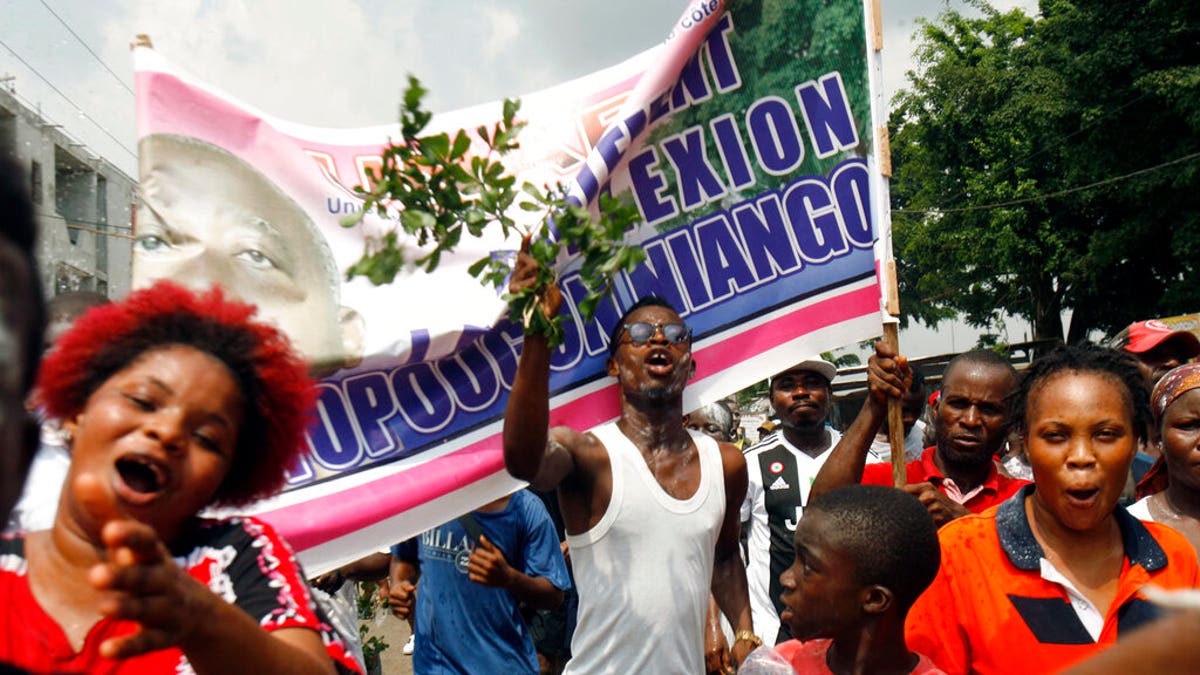
Former Ivory Coast President Laurent Gbagbo enters the courtroom of the International Criminal Court in The Hague, Netherlands, Tuesday, Jan. 15, 2019 (AP Photo/Peter Dejong, Pool)
The first former head of state to go on trial at the International Criminal Court in The Hague was acquitted Tuesday on crimes against humanity and a litany of others following a disputed 2010 election that led to a bloody civil war that left thousands dead and nearly a half million others displaced in West Africa.
Tuesday’s decision against former Ivory Coast President Laurent Gbagbo is a major setback to international prosecutors and raises doubts about the effectiveness of the court to go after alleged war criminals accused of genocide.
AFRICA ASKS UN TO SEEK COURT OPINION ON IMMUNITY FOR LEADERS
“This is yet another major blow for the I.C.C. prosecution, which has yet to show it can consistently sustain charges against high level accused of the most serious crimes,” James A. Goldston, executive director of the Open Society Justice Initiative, told The New York Times. He added that the acquittal underscored the need for a prosecutor who is “highly skilled at criminal investigation.”
Gbagbo was charged with four counts of crimes against humanity, murder, rape and other forms of sexual violence, persecution and “other inhumane acts.” He denied the allegations and claimed they were politically motivated.
The case against the 73-year-old was largely circumstantial. Prosecutors said he refused to give up power after losing to challenger Alassane Ouattara in 2010. Instead, Gbagbo waged an armed fight to stay in power and trapped Ouattara in a hotel. The unrest that broke out dragged on for five months and has been described as some of the most brutal battles the country had ever seen.
Eventually, French and United Nations troops forcefully ousted Gbagbo and installed Ouattara as the new president. However, that led to a standoff that sent the Africa nation back into a bloody civil war.
C AFRICAN REPUBLIC MILITIA LEADER TURNED OVER TO TRIBUNAL

Supporters of former Ivorian president Laurent Gbagbo, celebrate in the Yopougon district of Abidjan, Ivory Coast, Tuesday Jan. 15, 2019. Gbagbo was acquitted of crimes against humanity by the International Criminal Court in The Hague , saying prosecutors failed to prove their case. (AP Photo/Diomande Ble Blonde)
In The Hague, the public gallery erupted in loud cheers when the judge read the verdict acquitting not only Gbagbo but also his aide, Charles Blé Goudé. Supporters outside toasted with champagne while in the Ivory Coast’s economic capital of Abidjan, shirtless men ran through the streets, pumping their fists in the air to celebrate the win, the BBC reported.
Victims right advocates had a different reaction.
"If Laurent Gbagbo is released, we victims will not see justice," Karim Coulibaly, who was shot in the violence and had to have his arm amputated, told Agence France-Presse. “I was a driver but now I am unemployed. I’m not against reconciliation but first you have to look after the victims.”
The ICC was created in 2002 to try the world's worse crimes including war crimes and crimes against humanity. But it has had difficulty in getting any charges to stick. In 2014, the ICC’s chief prosecutor Fatou Bensouda dropped crimes against humanity charges against Kenyan President Uhuru Kenyatta.
CLICK HERE TO GET THE FOX NEWS APP
Last year, former Congolese vice-president Jean-Pierre Bemba was acquitted on appeal for crimes allegedly committed by his militia in the Central African Republic in 2002-2003.
